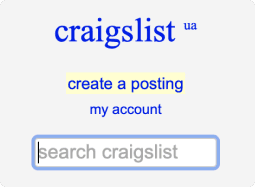How to Generate a Lead: Answers to Fundamental Questions
What does a lead mean, how to generate a lead,
and what to do next. Find the answers to these
fundamental questions in the DataOx blog.
Ask us to scrape the website and receive free data sample in XLSX, CSV, JSON or Google Sheet in 3 days
Scraping is the our field of expertise: we completed more than 800 scraping projects (including protected resources)
Table of contents
Estimated reading time: 5 minutes
Introduction
Lead generation, marketing qualified leads, sales qualified leads…
These are phrases that seem somewhat complicated to people who want to develop their business without a professional marketing team. There are a lot of resources explaining how to generate a lead for sales, or, better put, “sales qualified leads.” For a business owner who has no time to study extra topics, it’s easier to outsource this task to experts who offer lead generation as a service. But there are also enthusiasts who would like to do it by themselves or maybe even learn how to start a lead generation business. Here, we believe that everyone will find the answers to their fundamental questions about this topic.
What Does a Lead Mean in the World of Business?
In one word, a lead means interest. When you gain an interest in what you are selling, and this concern is expressed by sharing contact information, making a call, or even requesting a product demonstration, you are generating a lead. This is a common definition. But marketers and salespeople always argue about what actually constitutes a lead.

According to marketers, a lead happens when someone shows interest and shares contact information — but in this case, it is only a marketing qualified lead. By a salesperson’s definition, a lead is when a potential buyer is really interested in a product or service and asks for a demo or takes a free trial; in this case, it is a sales qualified lead.
A customer journey that traces the AIDA model perhaps best shows the difference.
What We Need to Start Lead Generation?
As we already stated, lead generation is the process of attracting customers. In fact, there is no sense in attracting anyone who is not your target audience. Similarly, it is pointless to spend resources on unnecessary channels. To understand how lead generation services work, let’s go ahead with the following principles.
Identifying potential customers
First, it is necessary to understand who your potential customers are and what they want. The process of identification is simple when there are answers to the following questions (depending on your product type; B2C or B2B).
| B2C | B2B |
|---|---|
| Location | Location |
| Age | Size of Company |
| Specialization | Field |
| Interests | Needs |
| Problems | Pain Points |
| Goals | Goals |
After getting the list of answers, you will have the picture of your buyer persona.
Building a database
When you have the criteria to get a qualified lead, you can build a list of potential clients. Agencies offering lead generation services use special tools to find such prospects. When the list is ready, the next step is to find some contact information, email or phone number. When we are talking about the B2B sector, it is not a big deal, but in B2C, the main channel for communication remains social network targeting.
Sharing your content
So, when you have already done the targeting, you can start thinking about all the communication channels you want to use to share your content. Professionally, this process is called “content syndication.” Lead generation services mostly practice email marketing to spread your content throughout the network. But you can also do your part through social networks or dedicated events. Take a look at the list of channels producing B2B leads. This list can help you understand how to develop a content distribution strategy.
Channels that produce B2B leads with highest ROI (top 3):

Delivering valuable content
Visitors usually link to your webpage through search engines, thanks to the keywords and phrases that are used in the content. That’s why — before developing the content — it is necessary to do some research and find vital keywords that customers type while searching for a necessary product or service. Here are three steps for keyword generation:
- Understand your customer queries
- Define the rank for keywords
- Use these keywords in content
Aside from your website containing a bunch of relevant keywords, there are also some premium content offers that can be an additional value for your potential customers. Here are some examples of premium content:
- eBooks
- Whitepapers
- Online webinars
- Product demos
- Free consultations
Developing a working web page
Knowing how to create a lead generation website is another important factor for prospective customers. According to many surveys, web pages consisting only of one homepage generate several times more leads than websites with more pages. The ideal web page should comprise:
- Name and catchy slogan
- A brief description with relevant keywords
- An image related to the offer
- Main benefits
- Registration or contact form
- Call to action buttons
- Chatbot
CTA buttons matter
What is the CTA button? CTA stands for a call-to-action button that should make customers perform a certain action. Text on the CTA button should be short and clear, and the design should be catchy. The place of CTAs is also very important. The main call-to-action button typically appears at the end, but there are cases when it is placed at the beginning of the page next to the key message, especially when it completely reveals a major benefit.

Promoting through blogs and social media
Promotion of valuable content through blog platforms or social media is increasing traffic to your website by those CTAs and anchor links, which take readers from other pages to the most relevant.

Social platforms like Facebook, LinkedIn, Instagram, or Twitter can also be a valuable tool to generate a lead. Facebook and Instagram are more productive for the B2C sector, and LinkedIn and Twitter are preferable for B2B. People use these platforms to search, discuss, or share information, so lead generation agencies know how to post links and content to social media pages to attract followers and redirect them to your website.
What to Do With Generated Leads?
When you have an idea for how to generate a lead, it’s time to understand what comes next. Imagine that you are selling something in the market and your potential buyer is walking around and looking for something to choose. In order to get a sale, you need to grab their attention and make a good impression. To nurture these leads, you need to practice the following actions:
- After submitting a contact form, say thank you to your potential customers by way of a thank-you page.
- Give them something for free as a gift, like a 1-month subscription for the service; or, if it is a product, offer a nice add-on.
- Provide them with further updates and promotions as newsletters.
- If your subscribers unsubscribe, have a “goodbye” page that provides them an opportunity to tell you why. Understanding why will prove very useful for further email campaigns.
Conclusion
By now, you have a better understanding of lead generation, how it works, and what the best techniques are.
For beginners, there are basic steps, like having a valuable homepage with opt-in possibilities, marketing content development, and promotion through social networks. Advanced users can go ahead with segmentation of target audience, co-working with influencers, using lead generation software, video marketing tools, or web scraping technology. If you think that everything is really complicated and you are not going to have a marketing department in the near future, you can always outsource the lead generation process to professionals.
If you want to generate sales qualified leads quickly and efficiently using web scraping technology, schedule a consultation with our expert. It’s always free!
Publishing date: Sun Apr 23 2023
Last update date: Wed Apr 19 2023




